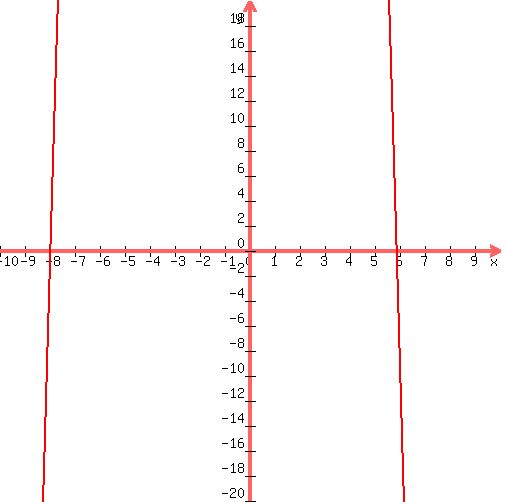Question 366047: If a stone is tossed from the top of a 230 meter building, the height of the stone as a function of time is given by h(t) = -9.8t2 – 10t + 230, where t is in seconds, and height is in meters. After how many seconds will the stone hit the ground? Round to the nearest hundredth’s place; include units in your answer.
Answer by Alan3354(69443)   (Show Source): (Show Source):
You can put this solution on YOUR website! It hits the ground when h(t) = 0.
Solve the equation for t.
----------------
h(t) = -9.8t2 – 10t + 230 = 0
------------------
If this happens on Earth, it should be h(t) = -4.9t^2 – 10t + 230, not 9.8t^2
------------------
Using 9.8:
| Solved by pluggable solver: SOLVE quadratic equation (work shown, graph etc) |
Quadratic equation  (in our case (in our case  ) has the following solutons: ) has the following solutons:

For these solutions to exist, the discriminant  should not be a negative number. should not be a negative number.
First, we need to compute the discriminant  : :  . .
Discriminant d=9116 is greater than zero. That means that there are two solutions:  . .


Quadratic expression  can be factored: can be factored:

Again, the answer is: -5.38151765807347, 4.36110949480817.
Here's your graph:
 |
------------
Using 4.9:
| Solved by pluggable solver: SOLVE quadratic equation (work shown, graph etc) |
Quadratic equation  (in our case (in our case  ) has the following solutons: ) has the following solutons:

For these solutions to exist, the discriminant  should not be a negative number. should not be a negative number.
First, we need to compute the discriminant  : :  . .
Discriminant d=4608 is greater than zero. That means that there are two solutions:  . .


Quadratic expression  can be factored: can be factored:

Again, the answer is: -7.94716846876618, 5.90635214223557.
Here's your graph:
 |
--------------
Ignore the negative values.
t = x in seconds
|
|
|